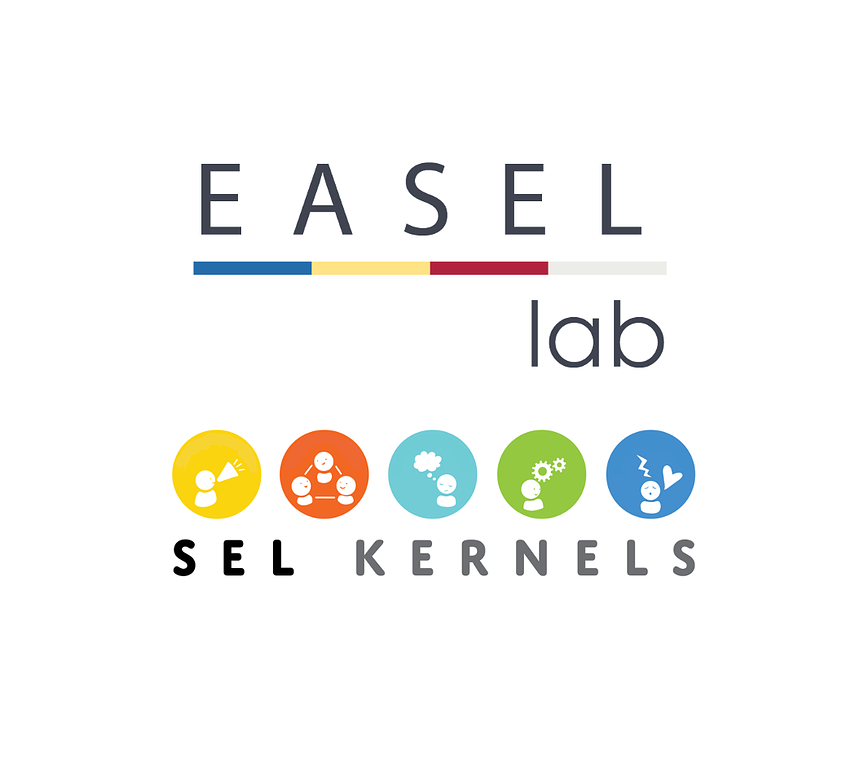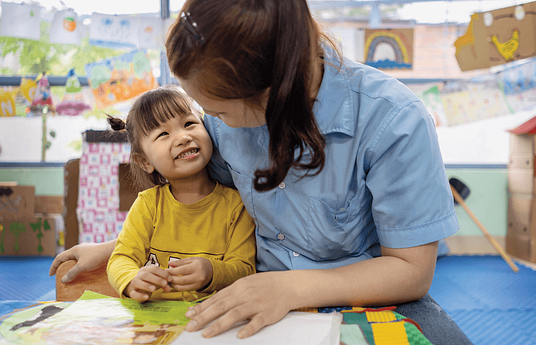Traditional SEL programs can be expensive and time-intensive, making them difficult to implement in many school-based and community settings, especially in low-resource environments. SEL programs also tend to be rigid and prescriptive, thereby limiting teacher autonomy and making it difficult to adapt SEL materials to different cultures, contexts, or individual and situational needs. We created Kernels as a low-cost, easy-to-use, flexible alternative to traditional programs. Our goal is to make high-quality and evidence-based SEL strategies more accessible, especially in vulnerable and hard-to-reach contexts, and to improve children's lives at scale.
We developed SEL Kernels by drawing from both research and practice. First, we analyzed more than 50 widely used and evidence-based SEL programs spanning early childhood, elementary, middle, and high school. We coded programs for the specific skills they build in each lesson and the instructional strategies they use (e.g., storytelling, music/art, discussion, game). From this database, we identify common practices and use them as a starting place for creating standalone strategies that can be used flexibly to respond to local needs. For example, one Kernel is a 5-minute game to build attention and working memory. Another Kernel teaches conflict resolution strategies, and another Kernel helps children practice healthy coping through cool down strategies. Kernels target knowledge, skills, and competencies across five broad domains of SEL that are linked to positive outcomes for children and youth: cognitive skills (executive function and self-regulation), emotion processes, social skills, character/values, and mindsets. Second, we conduct focus groups, surveys, and interviews with educators, parents, and other community members to identify SEL-related needs and current gaps in the field. Kernels are then designed, implemented, and evaluated with these needs in mind. We have created specific sets of Kernels for different age groups, from early childhood through secondary school (PreK-12). We have also created trauma-informed Kernels and Kernels that promote teacher wellbeing.
We use our database of Kernels to conduct field testing and design research that informs the local content, format, and delivery mechanisms for SEL Kernels in different contexts. We have collaborated with educators, parents and caregivers, ministry of education officials, humanitarian agencies, and nonprofit organizations to adapt SEL Kernels for diverse age groups and contexts, including: formal and non-formal education for refugees and internally displaced youth in Lebanon, Nigeria, and Uganda; early childhood centers in Brazil; afterschool programs and summer camps in the USA; youth leadership and sports programs in Morocco; and K-5 schools in Argentina, Australia, Canada, Chile, Estonia, Turkey, USA, and Ukraine. Across projects, we work with local partners to provide training and support and to study the uptake, implementation, and effectiveness of Kernels in each site.
Over time, we have modified our innovation by creating new Kernels that focus on specific needs identified by the communities where we work. For example, a newly developed set of trauma-informed Kernels integrate best practices from research on trauma care in schools, and incorporate elements of cognitive behavioral therapy (CBT) from evidence-based clinical programs. These strategies are designed to improve resilience and reduce stress and anxiety among children facing severe adversity. Another example is Teacher Wellbeing Kernels, which we developed in partnership with LEGO Foundation Master Trainers and educators in Ukraine. Teacher Wellbeing Kernels provide educators with flexible strategies to promote psychological and emotional wellbeing in the midst of ongoing crisis, including by building supportive peer relationships, identifying and caring for one's own needs, and using "grounding" techniques in response to acute stressors, such as air raids. Teacher Wellbeing Kernels can be used on their own to support adult wellbeing or in combination with student-facing Kernels.
For school and community-based partners interested in participating in research, professional development, or adapting SEL Kernels to your specific context, please reach out to EASEL Lab via easel@gse.harvard.edu. In addition, free access to a set of SEL Kernels is available on the Greater Good Science Center website (see below).



